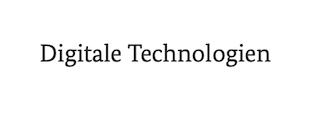ECO:DIGIT
Enabling green COmputing and DIGItal Transformation
Digital technologies have tremendous potential to make a decisive contribution to the urgently needed global transformation towards greater sustainability and climate protection. At the same time, the ICT sector is responsible for between two and six percent of global CO2 emissions annually, which is roughly equivalent to the emissions from global air traffic. Consequently, one of today’s biggest challenges is sustainable software development. Unfortunately, there are not enough methods available to measure the actual carbon footprint of digital solutions. However, these measurements are the prerequisite for further optimisation steps.
This is where the ECO:DIGIT – ‘Enabling green COmputing and DIGItal Transformation’ – project comes in. The aim of the project is to develop a ‘test bench’ that makes it possible to objectively measure and compare different technologies and operating models. The test bench is designed to thoroughly analyse and ensure the transparent presentation of the resource consumption of distributed software systems along with the entire digital infrastructure involved. This comprises modern software applications in both cloud deployment and edge computing. The project also accounts for the influence of supporting infrastructure, such as networks and users’ mobile or stationary devices – including smartphones. Common technology platforms and systems also play a role – particularly AWS, Google Cloud, Microsoft Azure and Sovereign Cloud Stack.
The new technology was designed to close a gap in the market: Comparable solutions are not yet available. Current options are limited to desktop applications, like ‘Blue Angel’ for energy- and resource-efficient software, or are still in experimental status, such as the ‘Green Metrics Tool’ from Green Coding Berlin or the ‘Environmental Data Agent’ from the Sustainable Digital Infrastructure Alliance. Other approaches, such as the Green Lab at the Vrije Universiteit Amsterdam, include several types of systems and are scientifically sound but require a considerable amount of manual configuration. Additionally, these solutions are not adequately scalable because of their reliance on a physical lab, and they do not enable seamless, independent use by customers’ external application developers.
Given these circumstances, the ECO:DIGIT project promises great potential for utilising the results to sustainably design future software projects and products, particularly in light of the growing demand for these types of solutions. The project team wants to use this novel technology to contribute to greater energy efficiency and improve the sustainability of digital systems.
Consortium:
- Gesellschaft für Informatik e. V. (GI) (Network Coordination)
- adesso SE
- Öko-Institut e. V.
- Open Source Business Alliance – Federal Association for Digital Sovereignty e. V.
- Siemens AG
Subcontracted:
- PlusServer GmbH
- ScaleUp Technologies GmbH & Co. KG
- Associated partner:
- eco – Verband der Internetwirtschaft e. V. (eco Association of the Internet Industry)
- Recommend this page:
- Print view

